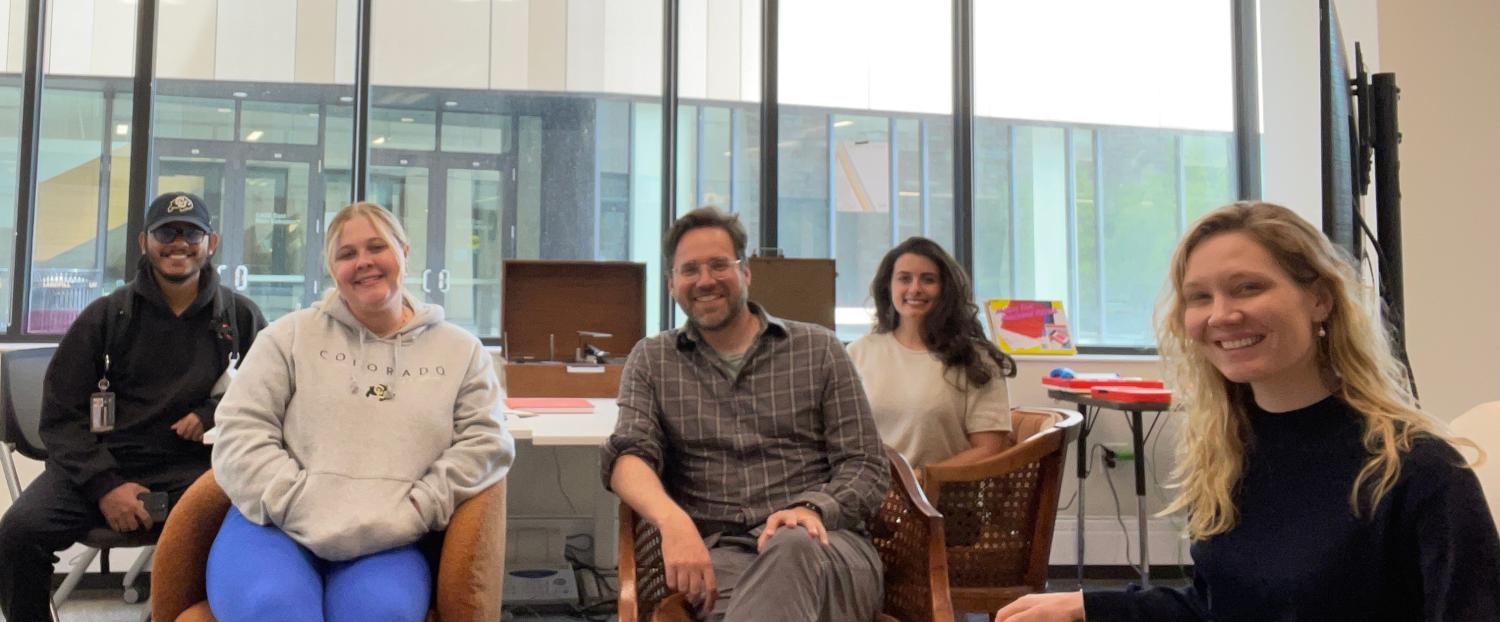Dispute Protocols for Community Organizations: Research and Design Thinking

The initial team working on the dispute protocols project. Left to right: Rajatava Karmaker, Sierra Rodriguez, Nathan Schneider, Júlia Martins Rodrigues, and Dorothy Howard.
This spring, MEDLab kicked off a new project aimed at building dispute protocols for diverse communities to facilitate accountability, repair, and organizational sustainability. Our process was grounded in three critical components:
- Rigorous analysis of existing dispute response policies
- Persona development to model real-world scenarios through design thinking
- development of initial prototypes
Our research team, led by Nathan Schneider and Dorothy Howard with graduate assistants in Media Studies, conducted a wide-ranging scan of dispute resolution frameworks, analyzing case studies from communities like DjangoCon, Mozilla, and PyCon. These examples introduced key design elements such as triage models, consequence ladders, and transparency mechanisms. At the same time, they revealed critical shortcomings, including limited accessibility, narrow definitions of harm, and overly rigid or punitive procedures. Our work responded to these gaps by emphasizing flexibility, cultural responsiveness, and care-centered approaches.
To test our framework, we developed 13 detailed personas and scenarios representing various conflict types that might emerge in community organizations. These included hybrid, virtual, and in-person disputes involving identity-based harm, power dynamics, communication breakdowns, and safety issues. Each persona accounted for variables such as age, access needs, organizational roles, and background. This allowed us to evaluate how well our protocols handle anonymous reporting, mediation, role clarity, and escalation procedures centered on repair rather than punishment.
This process fed directly into the creation of two distinct prototypes. The first is a protocol builder, a modular tool that allows communities to design their own dispute systems tailored to their specific structures, values, and needs. The second is a comprehensive, step-by-step complaint resolution method, offering a detailed walk through of how to respond to conflict, including role assignment and care-focused decision making.
Together, these prototypes are grounded in research, informed by real-world testing, and designed to meet the needs of a wide variety of communities, taking special care to address the specific needs of decentralized and informal communities. In next steps, we plan to explore building mediation and conflict resolution training resources for community organizers.
Through this multi-faceted approach, MEDLab aims to build conflict resolution tools that communities can trust, adapt, and grow with. Stay tuned for more developments on this effort, and be in touch with ideas about potential collaborations or contributions.

